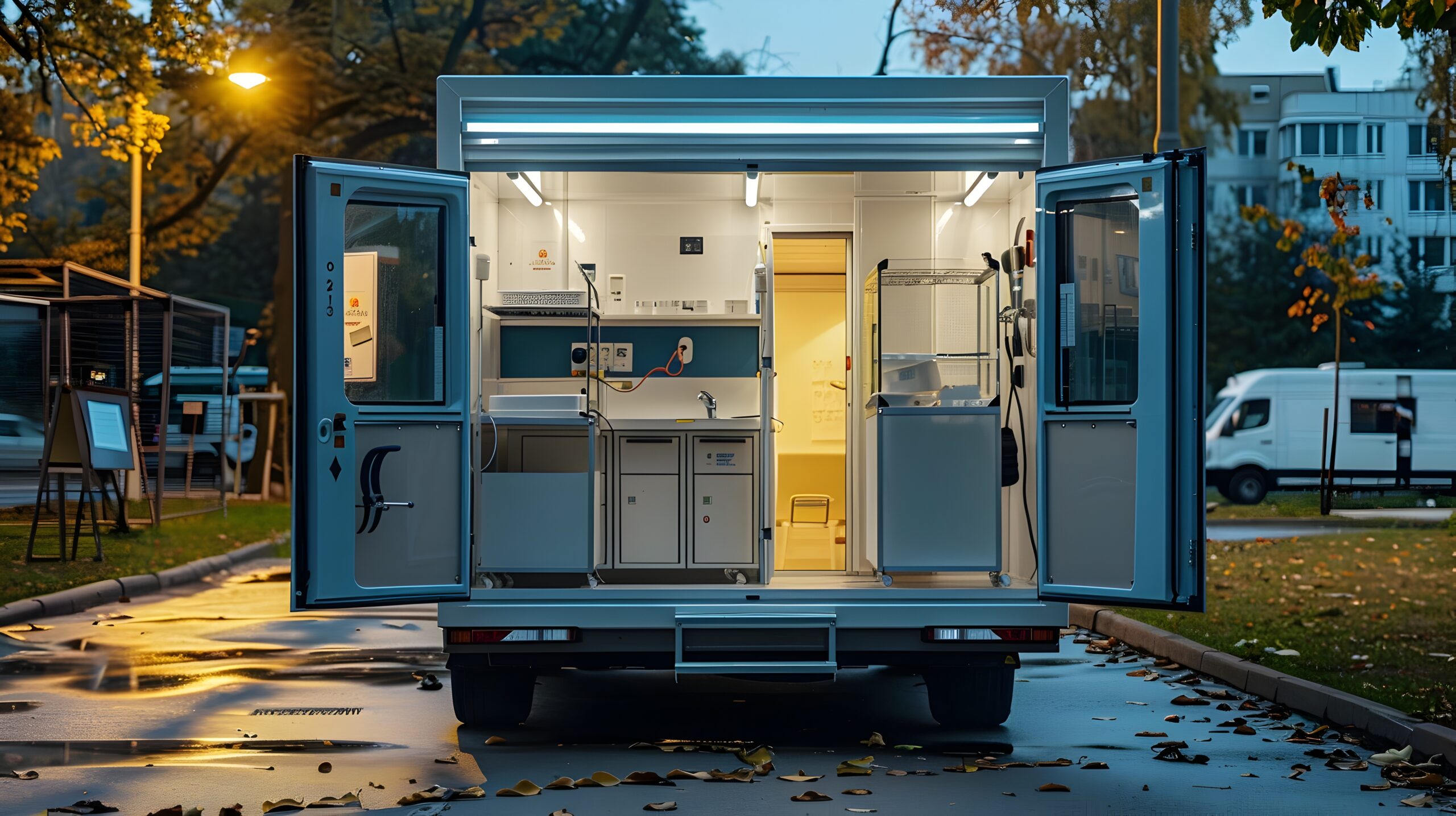Delivering high-quality healthcare to everyone, everywhere, isn’t easy. Traditional healthcare settings often struggle to reach remote communities, respond to emergencies, or adapt to surging demand. This is where medical trailer systems step in to revolutionize healthcare delivery. These versatile, mobile units offer a flexible and efficient way to provide critical medical services wherever and whenever they are needed.
In this article, we’ll explore the numerous benefits of using medical trailer systems and how they’re transforming the healthcare landscape.
Rapid Response and Adaptability
When it comes to healthcare, time is everything. Medical trailer systems shine in their ability to respond rapidly, making them invaluable in emergencies. Take a natural disaster, for example. A medical trailer can be swiftly dispatched to provide immediate aid and triage, sometimes within hours. This swift action can mean the difference between life and death.
But their agility doesn’t stop there. These mobile units are built on wheels, ready to be towed wherever they’re needed most. Whether navigating rugged terrain to reach remote villages, weaving through bustling cities to address outbreaks, or supporting troops on military bases, their mobility eliminates geographical barriers to care.
What truly sets medical trailer systems apart is their customizability. They can be configured to serve as anything from primary care clinics and mobile operating rooms to specialized units for dental care, mental health, or disaster response. This versatility ensures they’re always ready to tackle a wide range of healthcare challenges, proving their worth in the ever-changing healthcare industry.
Expanding Access to Healthcare

One of the most significant advantages of medical trailer systems is their ability to bridge the healthcare gap, particularly in underserved and remote areas. For communities located far from traditional hospitals or clinics, accessing essential medical services can be a monumental challenge.
Medical trailers bring healthcare directly to these areas, offering primary care, preventive screenings, and even specialized treatments. This eliminates the need for long, arduous journeys to distant medical facilities. It ensures that everyone has the opportunity to receive the care they need, regardless of their location.
Medical trailers also play a pivotal role in disaster response and recovery efforts. In the aftermath of natural disasters or humanitarian crises, establishing temporary medical facilities is crucial. This not only saves lives but also helps communities begin the healing process and rebuild their lives.
Beyond emergency situations, medical trailer systems actively contribute to public health initiatives. They can be used to conduct vaccination campaigns, health screenings, and educational programs in communities that might otherwise be difficult to reach. By bringing these essential services directly to the people, medical trailers empower individuals to take charge of their health and well-being.
Scalability and Tailored Solutions
Medical trailer systems are incredibly versatile, thanks to their modular design. Need more space for a sudden influx of patients? No problem—just link another trailer unit to your existing setup. This adaptable approach allows healthcare providers to swiftly respond to changing needs, whether it’s a seasonal flu outbreak or a long-term project in a growing community.
But size isn’t everything; it’s about making the space fit the specific healthcare service. A medical trailer can transform into a fully equipped operating room one day and a comfortable birthing center the next. It can be a specialized rehabilitation unit or a state-of-the-art imaging center.
Customization extends beyond the physical layout. Medical trailers can be equipped with advanced telemedicine technology, facilitating virtual consultations with specialists from afar. They can also be fitted with specialized diagnostic equipment, like mobile MRI or CT scanners. This level of customization ensures that medical trailer systems can deliver a wide array of healthcare services, rivaling the capabilities of traditional brick-and-mortar facilities.
A Wise Investment in Healthcare
The financial benefits of medical trailer systems are undeniable. Compared to building traditional hospitals or clinics, medical trailers offer significant cost savings. Constructing a permanent structure involves expenses like land acquisition, architectural design, and lengthy construction processes. Medical trailers, on the other hand, are pre-fabricated and can be quickly deployed, saving both time and money.
Furthermore, the maintenance costs of medical trailers are generally lower than those of fixed facilities. Trailers are designed for durability and can withstand the rigors of transportation and frequent use. They often require minimal upkeep, and repairs can be carried out efficiently due to their modular nature.
Medical trailers are not a one-time expense; they are a long-term investment. Their reusability and adaptability mean that they can be repurposed for different medical needs over time. This flexibility extends the lifespan of the investment and ensures that the initial cost is spread out over multiple uses, making them a prudent choice for healthcare providers. Additionally, the ability to relocate trailers eliminates the risk of being tied to a specific location, which can be a financial advantage in changing healthcare landscapes.
Final Words
From responding swiftly to emergencies to reaching remote communities and bolstering public health efforts, medical trailers are reshaping how we deliver care. With their rapid deployment, flexibility, expanded access, scalability, customization options, and financial benefits, they empower healthcare providers to deliver high-quality care precisely where and when it’s needed most.
As technology advances and healthcare needs evolve, medical trailers are poised to play an even larger role. Their ability to bring essential services directly to people, regardless of location or circumstance, showcases the transformative power of innovation in the healthcare industry. They’re not just a solution for today; they’re a glimpse into the future of healthcare delivery.
Author’s Bio
Lily Stoneking is a healthcare writer passionate about innovative solutions that improve patient care. With a background in medical journalism and a keen interest in the intersection of technology and healthcare, she strives to make complex medical topics accessible to a wider audience. When not immersed in writing, she can be found exploring nature trails or experimenting with new recipes in the kitchen.










Discussion about this post